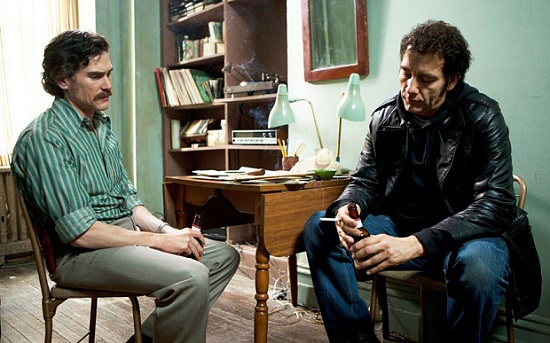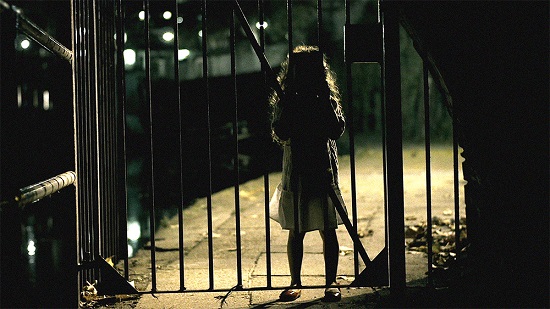Just yesterday a friend of mine was complaining about the comparative lack of coverage that PG13 bro-fest The Expendables III has been receiving. He wanted to know the details. Who-does-what-to-who-with-what? That sort of thing. Luckily this in-depth review arrived on my desk just this morning. I shall run it in its entirety.
MY REVIEW OF THE EXPENDABLES THE THIRD ONE BY JASON APOLLO AGE 6:
I LIKED IT WHEN MEL GIBSON PUT HIS BIG RACIST WILLY IN SILVESTER AND THEY KILLED DEMOCRACY
I think that just about covers it, don’t you? Here are the pick of this week’s cinematic delights, as chosen by the Quietus film team, together for one last job or until age and complacency take them.
Words by Nadia Attia, Yasmeen Khan and James Ubaghs
Lucy (dir: Luc Besson)

After a few misfires (The Extraordinary Adventures of Adèle Blanc-Sec, Arthur and the Invisibles, Angel-A) director Luc Besson is sparking synapses all over the world with the help of an actress who is most certainly de rigueur. Scarlett Johansson is the latest in a long line of ladies that Besson has – to his credit – given leading roles. The director knows how to cast a photogenic heroine (Johansson, Louise Bourgoin, Rie Rasmussen, Milla Jovovich, Nathalie Portman, Anne Parillaud) and they have to work for it. These girls are the beating heart of his films. He even married a couple of them, he liked them so much.
In Lucy there are manga stylings and nods to Akira; Matrix-style sequences; obvious comparisons to 2011’s Limitless; as well as Besson’s trademarks – thrilling car chases through Paris and lots of guns. But where The Fifth Element revelled in fantastical exuberance, Lucy does its best to appear grounded in science and grit.
Johansson is evidently the go-to girl for ‘going there’ (at one point she eats her own snot – not sure Jovovich would have done that), and her ability to throw herself into her roles gives Lucy some much-needed credibility. Sure, Besson consulted with scientists and doctors when creating the story, but the more screen time that goes by the more science goes out of the window. Even Morgan Freeman’s patronising professor can’t explain how hyperactive brain cells can suddenly subvert all the laws of physics. But then, this is the movies; you should probably leave your patchy GCSE science at the door.
Besson is always gong to let rip with his imagination, at times taking the film into Tree of Life territory (yes, there are dinosaurs). But when confronted with a film like Lucy it’s best to do as Johansson does: shoot first, ask questions later. Nadia Attia
Keeper Of Lost Causes (dir: Mikkel Norgaard)

The latest addition to the extensive Nordic noir canon, The Keeper of Lost Causes is an adaptation of Jussi Adler-Olsen’s novel Mercy. Nikolaj Lie Kaas plays Carl Mørck, a detective who’s screwed up and been confined by the brass to sorting cold cases in a basement office as punishment. No wonder Carl’s depressed. His wife’s divorcing him, his stepson is a pain in the arse, he likes a drink, he’s been lumbered with an obnoxiously cheerful assistant he doesn’t want. But then, the case of a missing politician turns out not to be so cold after all…
So far, so clichéd, and it’s true that there’s absolutely nothing new in The Keeper of Lost Causes. Nonetheless, it’s absolutely terrific. It’s a satisfying, absorbing thriller that proves that when a genre piece is done well, originality and innovation matter not at all. There’s good crime fiction and bad crime fiction, but newness of characterisation or plot have little to do with separating the two.
The film’s gorgeously photographed and genuinely atmospheric – there are some truly creepy scenes. The best thing, though, is the writing. The dialogue is sharp, smart and often very funny, and every character is deftly, economically portrayed. And the great writing supports great performances. The central relationship between Carl and Assad is a joy – yes, it’s yet another story of a detective reluctantly learning to accept a new partner, but Nikolaj Lie Kaas and Fares Fares have wonderful chemistry, and they bring depth, compassion and humour to the tale. They’ve got the trick of making you want them to succeed without being mawkish. It’s probably as simple as likeability.
The adaptation was written by Nikolaj Arcel, who also wrote A Royal Affair(2012) and the 2009 Swedish film version of The Girl with the Dragon Tattoo. The Keeper of Lost Causes does have a lot in common with Dragon Tattoo– but luckily it’s the good bits, the atmosphere and the satisfying intricacy of the mystery being revealed, piece by piece.
Mercy is is the first book in a series, and it feels like Carl and Assad’s Department Q could go on to be as long running and successful as any detective franchise. The beginnings of cop partnership tales can be wonderful explorations of how trust and liking begin to grow – often, this is what makes the beginnings of series better than later books that must conform to the winning formula, rather than explore character development. Let’s hope this doesn’t happen to Carl and Assad, and that they continue as well as they’ve begun. Yasmeen Khan
Blood Ties (dir: Guillaume Canet)

The problem with taking blatant inspiration from the best is that you immediately set yourself up for
unflattering comparisons. French director Guillaume Canet’s debut English language film Blood Ties, is a throwback 70’s crime thriller, that fetishizes and harkens back to an incredibly fertile period of genre cinema that served up countless classics of both the prestigious and exploitative sort.
Needless to say it’s impossible to refrain from comparing this gritty tale of gritty New York cops and even grittier hoodlums to such unassailable classics as The French Connection, Syndney Lumet’s crime output, the early work of Scorsese, Dirty Harry and so on and so on. Blood Ties is committed to playing its homage straight, and accordingly it can’t help but come across as a pale and unnecessary facsimile that offers little new of its own.
Clive Owen and an impressively grizzled Billy Crudup star as brothers on opposing sides of the law, and Zoe Saldana, Marion Cotillard, and Mila Kunis feature as the put upon women who love these hard living men of action. The cast is rounded off with James Caan as the brothers’ ailing father, and a pleasing selection of familiar faces from prestige US cable dramas fill out the smaller roles.
It’s a richly talented cast but a heavy-handed script and odd sense of pace ensures that none of it adds up to much. It’s all deeply familiar and the characters never come across as more then unengaging stock types. Nor does it embrace its own pulpiness to offer up exploitative thrills; instead this thinly drawn tale takes itself very seriously indeed. The film is glacial in setting up its conflicts, and potentially exciting plot developments are later awkwardly rushed through in order to bring us to an overly laboured finale.
Still it’s not all bad, the period detail is convincing and well done (just look at how feathered Crudup’s hair is!) and the film really perks up in its few action scenes. The handful of shoot outs are tense Michael Mann-esque affairs, and that’s pretty much the gold standard when it comes to cops and robbers shooting at each other in the street. Unfortunately the would-be-epic family crime drama surrounding these visceral scenes is of a much poorer craft. James Ubaghs
Scar Tissue (dir: Scott Michell)

Scar Tissue starts as it means to go on, with hyperviolent, lurid overkill. A police SWAT team follow a trail of little lost shoes to the canalside underground lair where Edward Jansen, serial killer of children, lurks. Amidst a horrifying tableau of eyeless bodies, they empty their machine guns into him. The plot clearly needs us to know he’s really dead.
Years later, Luke Denham (Danny Horn) gets caught in a waking nightmare when he finds the grotesquely mutilated corpse of one of his friends in his bathroom, and it turns out the DNA of the long-dead Jansen is all over her. He hooks up with suspended police detective Sam Cross (Charity Wakefield), whose connection with the case is even more personal – her sister was murdered by Jansen minutes before the police tracked him down. Now they’re both seemingly being stalked by the psychopath’s ghost…
Scar Tissue is an odd hybrid; part slasher movie, part rogue cop thriller, part British urban grit flick. The jumpy opening credits, the use of an adorable moppet (Lois Ellington, giving arguably the film’s best performance) the slightly self-conscious way everyone says ‘wanker!’ and ‘arse!’, the script that feels like a series of one-liners strung together, the unnaturally red blood, the sickly greeny-yellow photography – the whole thing has a distinct TV-drama feel about it. It’s a supernatural horror without a demon and a forensic procedural in which dedicated cops are ridiculously slapdash about basic procedures. But these are things the film wants you to get over, because the story has a grander aim. It wants to be about the why of it all, the old question of whether people can ever be born evil.
The music was composed by Mark Ayres, who’s best known for his incidental music for Doctor Who in the ‘80s and for cataloguing the archive of the BBC Radiophonic Workshop. Ayres’ music is varied and vivid – sombre strings, loud guitars, moody electronic sounds, and it does add a depth to the otherwise full-on horror assault.
Scar Tissue is a horror curio, a grimly sensational, seedy shock-fest. But to be fair, the plot twists do actually turn out to make sense, and amongst a lot of daftness and Saw-style gameplaying, there’s at least some narrative satisfaction to be found by the end. Yasmeen Khan


